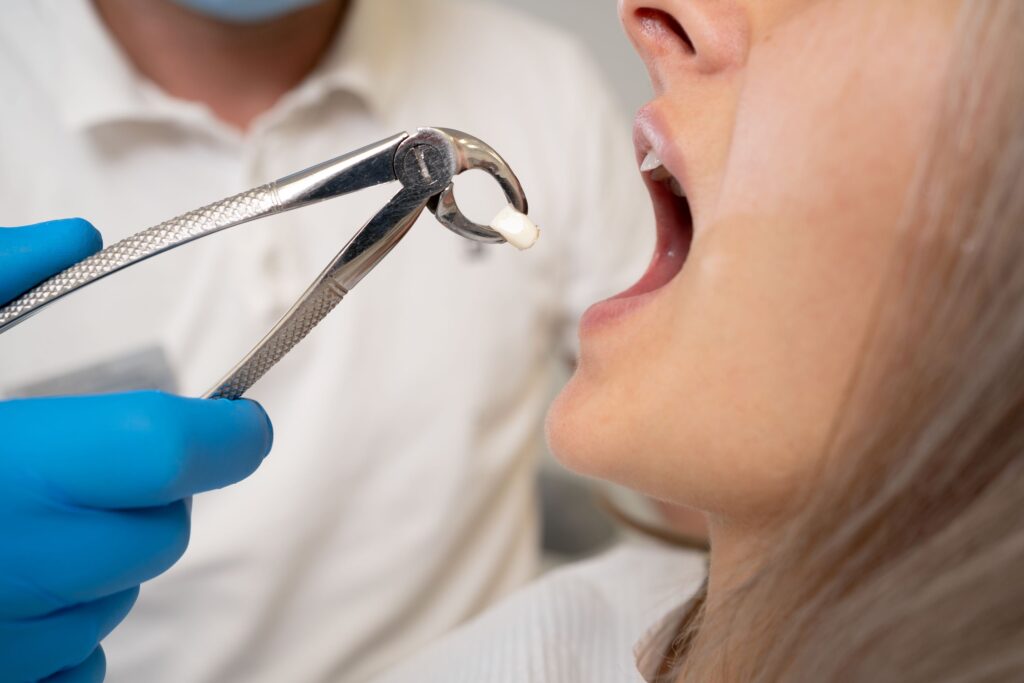Helping or Hurting: Do I Need an Extraction If I’m Not in Pain?
November 15, 2025

You can usually count on your dentist to do their utmost to preserve your natural teeth and gums. For instance, they can provide preventive care to help avoid problems, and restorative services to repair your smile once damage has occurred.
However, if you have a severely injured, decayed, or diseased tooth and your provider determines no other treatment can effectively repair it, they might have no recourse but to recommend extraction and replacement. But if you’re not actively hurting, you might wonder whether this procedure is truly necessary. Continue reading to learn more about it!
What Happens During a Tooth Extraction?
Many patients avoid scheduling more complex procedures they think might hurt, such as having a troublesome tooth removed. Understanding what to expect can help reduce your anxiety around your visit.
It might vary based on your circumstances, but typically, your dentist begins by numbing the area with a local anesthetic. That way, you might feel pressure while they work, but not pain. Many providers also offer sedatives, such as nitrous oxide (laughing gas) to help you feel calm and comfortable.
Then, they use a special dental instrument known as an ‘elevator’ to help lift your pearly white from its socket. Next, they gently grasp it with forceps and wiggle it until it slips free. If you’re having a molar or wisdom tooth extracted, it may need to be broken into smaller sections before it can be safely removed.
Do I Need an Extraction if My Tooth Doesn’t Hurt?
Many patients require extraction because they developed a persistent throbbing. In some cases, overly damaged or decayed enamel or gum tissues can cause discomfort that can only be alleviated by removing the offending tooth and addressing the underlying infection.
However, pain is not a prerequisite for undergoing this procedure. For instance, you might assume that your condition has improved if the throbbing in your mouth suddenly dissipates. Unfortunately, it’s more likely that the disease-causing bacteria have finally killed the roots in your tooth, so it can no longer sense pain. Just because you can’t feel it doesn’t mean that treatment is no longer required.
Why Are Tooth Extractions Sometimes Necessary?
There are several reasons why your dentist might recommend an extraction procedure, including:
- To treat infection. If you have a tooth that only partially erupted or is trapped in your jawbone, it can become infected or impacted, causing aches and disease that can spread if left unaddressed.
- As a preliminary treatment. Sometimes, removing teeth is required for other services, such as getting braces or dentures, to be successful.
- To halt gum disease progression. Bacteria in your mouth can penetrate your connective tissues, causing a contagious disease that can cause your gums to retract, leaving your teeth without a firm enough anchor to remain in place.
If you’re unsure why your provider recommended this treatment, you can learn more by having an honest conversation with them about your questions and concerns.
Meet the Author
Dr. Saeed Rouhani strives to provide top-quality services in a welcoming environment to help patients of all ages feel calm and comfortable throughout their visit. He earned his Doctor of Dental Surgery at Baylor College of Dentistry in 2000, and today, he is a member of several professional organizations, including the American Dental Association. Dr. Rouhani has nearly 20 years of experience and provides a comprehensive menu of services, including extractions and sedation, to conveniently meet your unique needs. You can request an appointment on the website or by calling (972) 733-0999.
No Comments
No comments yet.
RSS feed for comments on this post.
Sorry, the comment form is closed at this time.
